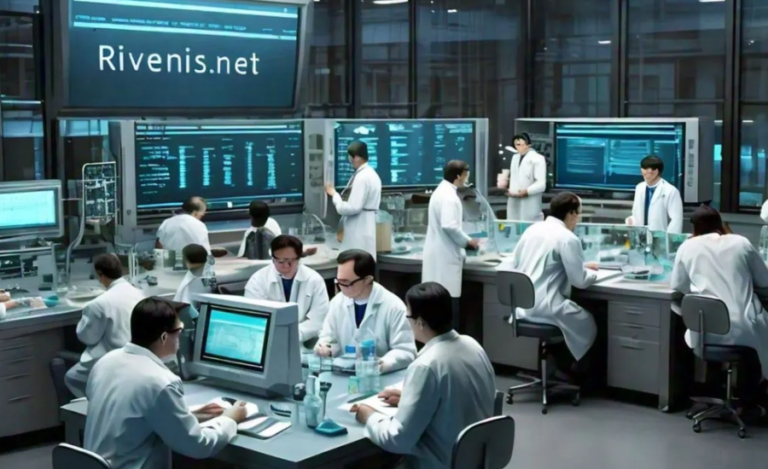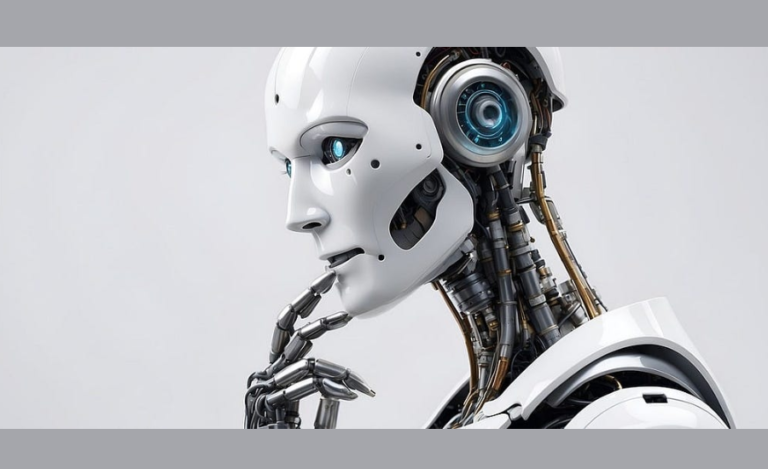A Rising Star in Cancer Immunotherapy
Erik Williams, a dedicated Ph.D. student at the University of Pennsylvania’s Perelman School of Medicine, is rapidly gaining recognition in the field of cancer immunotherapy. Through his pioneering research under the mentorship of Dr. Joseph Fraietta, Erik is contributing to the evolution of CAR T cell therapy, a promising treatment approach that is revolutionizing cancer care. As a rising star in this dynamic field, Erik is helping reshape the future of cancer treatment, offering hope to patients battling some of the most aggressive forms of cancer.
The Journey of a Visionary Researcher
Erik’s path into cancer research began with a deep fascination for biology and a desire to make a lasting impact on medicine. His academic journey led him to the University of Pennsylvania, a world-renowned institution known for its cutting-edge research and breakthroughs in medical science. Here, Erik embarked on a career that would not only shape his future but also contribute significantly to the advancement of cancer therapies. His story is one of passion, perseverance, and dedication to making a difference in the fight against cancer.
From Aspiring Scientist to Cancer Research Pioneer
Erik’s transition from an aspiring scientist to a trailblazer in cancer research has been marked by his relentless drive to understand the complex biology of cancer cells and develop innovative therapies to combat them. His academic and professional choices have been guided by a singular vision: to make meaningful strides in cancer treatment. Throughout his studies, Erik has remained committed to pushing the boundaries of medical science, exploring new avenues in the fight against cancer, and contributing to groundbreaking advancements in the field of immunotherapy.
Mentorship Under Renowned Immunologist
A key factor in Erik’s success has been his mentorship under Dr. Joseph Fraietta, an esteemed immunologist known for his contributions to cancer immunotherapy. Dr. Fraietta’s guidance has been instrumental in shaping Erik’s research, providing him with the expertise and tools needed to explore new possibilities in cancer treatment. Under Dr. Fraietta’s mentorship, Erik has honed his focus on synthetic biology and genetic engineering, both of which are central to his research on CAR T cell therapy.
Revolutionizing Cancer Treatment Through CAR T Cell Therapy
One of Erik’s primary areas of focus is CAR T cell therapy, a revolutionary cancer treatment that involves modifying a patient’s own immune cells to target and destroy cancer cells. Using cutting-edge technologies like CRISPR/Cas9, Erik is working to improve the precision and efficacy of CAR T cell therapy. His research is designed to enhance the ability of T cells to target and eliminate cancer cells more effectively, addressing some of the key challenges that have limited the widespread use of CAR T cell therapy in clinical settings.
The Promise of CAR T Cell Therapy
CAR T cell therapy has already demonstrated significant promise in treating certain cancers, particularly hematologic malignancies like leukemia and lymphoma. However, its application has been limited by several factors, including its efficacy in solid tumors and its potential side effects. Erik’s work aims to overcome these challenges by developing more effective CAR T cell therapies that can be used to treat a broader range of cancers. His research is helping to unlock the full potential of CAR T cell therapy, offering hope for patients whose cancers have been resistant to traditional treatments.
Harnessing the Power of Synthetic Biology
Synthetic biology, a field that combines biology, engineering, and computer science, plays a critical role in Erik’s research. Through synthetic biology, researchers can reprogram cells to perform specific tasks, such as targeting and destroying cancer cells. Erik is using synthetic biology to engineer T cells into “living drugs” that can adapt and respond to the tumor microenvironment. This approach not only improves the effectiveness of CAR T cell therapy but also minimizes potential side effects, making the treatment safer and more targeted.
CRISPR/Cas9: A Game-Changing Tool in Erik’s Arsenal
A key tool in Erik’s research is CRISPR/Cas9, a revolutionary gene-editing technology that allows scientists to make precise changes to the genetic code. In the context of cancer immunotherapy, CRISPR/Cas9 enables Erik to edit the genetic material of T cells, enhancing their ability to recognize and destroy cancer cells. By targeting specific genes involved in cancer resistance, Erik is working to improve the efficacy of CAR T cell therapy, making it more effective in treating a wider range of cancers.
Precision Editing for Enhanced Cancer-Fighting Abilities
Erik’s use of CRISPR/Cas9 technology allows him to make highly targeted modifications to the genes of T cells, improving their ability to fight cancer. Through precise genetic editing, Erik can enhance the T cells’ ability to recognize and eliminate even the most resistant cancer cells. This precision editing is a crucial step in improving the safety and effectiveness of CAR T cell therapies, ensuring that they can be used to treat a variety of cancers with fewer side effects.
Overcoming Resistance and Improving Safety
One of the major challenges in cancer treatment is the ability of tumors to develop resistance to therapies. This resistance can lead to treatment failure, making it difficult to effectively target and destroy cancer cells. Erik’s research is focused on overcoming this resistance by engineering T cells that can adapt and sustain their attack against cancer cells. In addition to improving efficacy, Erik’s work also focuses on reducing potential risks to patients, ensuring that CAR T cell therapy remains both effective and safe.
The Epigenetic Frontier: Unraveling T Cell Mysteries
Beyond genetic engineering, Erik is also exploring the epigenetic landscape of T cells, aiming to understand how various factors influence their behavior and function. Epigenetics refers to changes in gene expression that do not involve alterations to the underlying DNA sequence. By studying these modifications, Erik is uncovering new insights into how T cells can be programmed to fight cancer more effectively. This research has the potential to lead to new therapies that can better harness the power of the immune system to combat cancer.
Exploring the Epigenetic Landscape of T Cells
Erik’s exploration of T cell epigenetics is helping to reveal new ways to manipulate the immune system for therapeutic purposes. By understanding how epigenetic modifications affect T cell function, Erik hopes to develop more effective and adaptable cancer therapies. This research could lead to treatments that not only target cancer cells more precisely but also minimize the risks of side effects, making CAR T cell therapy a more viable option for a wider range of patients.
Deciphering T Cell Differentiation
Another critical area of Erik’s research is the study of T cell differentiation, which refers to the process by which T cells develop into specialized cells with specific functions. By understanding how T cells differentiate and mature, Erik is working to optimize their therapeutic potential. This aspect of his research could lead to the development of CAR T cell therapies that provide longer-lasting and more robust responses against cancer cells, improving the chances of success for patients undergoing treatment.
Collaborative Efforts and Future Directions
Erik’s work is not only highly innovative but also highly collaborative. He works closely with teams across multiple disciplines at the University of Pennsylvania, bringing together experts in genetics, immunology, and bioengineering to accelerate the development of new cancer therapies. These interdisciplinary collaborations are crucial for translating research from the lab to the clinic, ensuring that the therapies being developed have real-world applications and can benefit patients in need.
Interdisciplinary Approach to Cancer Research
The interdisciplinary nature of Erik’s research is a key factor in its success. By integrating insights from different fields of science, Erik is able to approach cancer therapy from multiple angles, increasing the chances of finding effective solutions to the complex challenges posed by cancer. This collaborative approach is essential for driving progress in cancer research and ensuring that the next generation of therapies is both innovative and practical.
Increasing the Range of CAR T Cell Therapy
Looking ahead, Erik is particularly focused on expanding the use of CAR T cell therapy to treat solid tumors. While CAR T cell therapy has shown success in treating blood cancers like leukemia and lymphoma, its application in solid tumors has been more challenging due to issues with delivery and efficacy. Erik’s research aims to overcome these challenges, opening the door to new possibilities for treating a broader range of cancers. His work is paving the way for CAR T cell therapy to become a viable option for patients with solid tumors, providing hope for those with cancers that are currently difficult to treat.
Conclusion: A Bright Future in Cancer Immunotherapy
Erik Williams is at the forefront of a new era in cancer treatment. Through his groundbreaking research at the University of Pennsylvania, he is helping to shape the future of cancer immunotherapy, offering hope to patients worldwide. As he continues to explore new ways to enhance CAR T cell therapy and overcome the challenges of cancer treatment, Erik’s work promises to pave the way for more effective and accessible therapies in the years to come. His commitment to innovation and his passion for improving the lives of cancer patients make him a researcher to watch in the exciting field of cancer immunotherapy.
Facts:
- Ph.D. Student at UPenn: Erik Williams is a dedicated Ph.D. student at the University of Pennsylvania’s Perelman School of Medicine, focusing on cancer immunotherapy.
- Mentorship: He works under the mentorship of Dr. Joseph Fraietta, a renowned immunologist known for his contributions to cancer immunotherapy.
- Research Focus: Erik’s research is centered around improving CAR T cell therapy, a groundbreaking cancer treatment that modifies a patient’s immune cells to target and destroy cancer cells.
- Technology Used: He employs cutting-edge tools like CRISPR/Cas9 and synthetic biology to enhance the precision and effectiveness of CAR T cell therapy.
- Innovative Work on Solid Tumors: While CAR T cell therapy has seen success in blood cancers, Erik aims to expand its application to treat solid tumors, which have proven more challenging.
- Epigenetics Research: Erik also explores the epigenetic modifications of T cells, which play a key role in how these immune cells function and respond to cancer cells.
- Collaborative Approach: Erik collaborates with experts from various fields, including genetics, immunology, and bioengineering, to enhance the development of new cancer therapies.
- Hope for the Future: His work offers hope for more effective and personalized cancer treatments, particularly for patients whose cancers are resistant to conventional therapies.
FAQs:
Who is Erik Williams?
Erik Williams is a Ph.D. student at the University of Pennsylvania’s Perelman School of Medicine, focusing on advancing cancer immunotherapy, particularly CAR T cell therapy.
What is CAR T cell therapy?
CAR T cell therapy is an innovative treatment where a patient’s immune cells (T cells) are genetically engineered to recognize and destroy cancer cells. Erik Williams is working to improve this therapy, particularly for solid tumors.
What tools does Erik Williams use in his research?
Erik uses CRISPR/Cas9, a gene-editing technology, and synthetic biology to enhance the precision and effectiveness of CAR T cell therapy.
What is the goal of Erik’s research?
The goal of Erik’s research is to improve CAR T cell therapy to treat a broader range of cancers, including solid tumors, and to make it safer and more effective.
Why is Erik’s research important for cancer treatment?
Erik’s research is crucial because it addresses the challenges in current cancer treatments, such as resistance to therapy and side effects, and works to unlock the full potential of immunotherapy for patients with difficult-to-treat cancers.
How does Erik Williams collaborate with others?
Erik works closely with a multidisciplinary team of experts in genetics, immunology, and bioengineering at the University of Pennsylvania to accelerate the development of new cancer therapies.
What is the potential impact of Erik’s work?
Erik’s work could revolutionize cancer treatment, making therapies more personalized and effective, providing hope for patients who currently have limited treatment options.
What is the future of Erik’s research?
Erik aims to expand the use of CAR T cell therapy to treat solid tumors and continue developing therapies that are both highly effective and safe for a broader range of cancer patients.
Stay connected for the latest news and updates on ny-tribune.com






